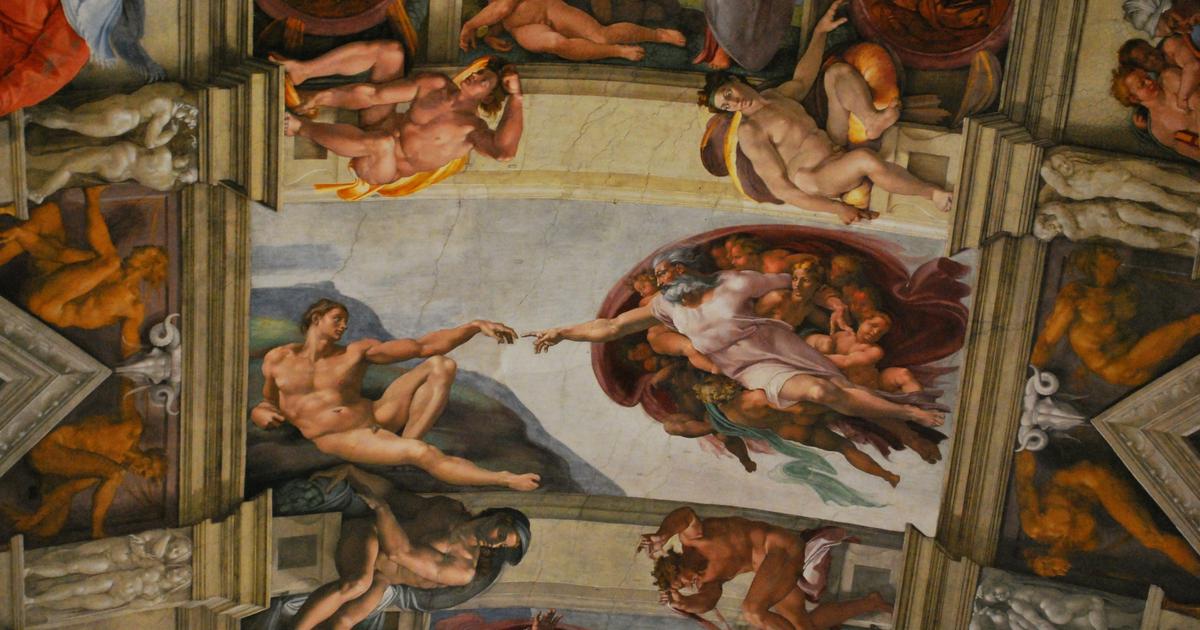The Cryptovoxels metaverse, where virtual properties and other NFTs can be bought and sold.
If you don't like life as it is right now, we are updating a higher version.
For now we'll call it a metaverse.
Nobody knows exactly what it is about, but soon everyone will talk about it, like the
blockchain
,
big data
or the internet of things: without having a clue, but with conviction.
"Aren't we in the metaverse yet?" Journalists John Herrman and Kellen Browning asked in an article in
The New York Times
this past July.
They were trying to define this virtual and persistent entelechy — this adjective is not gratuitous.
In the end they recognized that they face the same difficulties that those who tried to explain what the internet would be like in 1989 as we know it today.
The founder and CEO of Facebook, Mark Zuckerberg, defined it in July, in a
podcast
in
The Verge
magazine
, as "a persistent and synchronous environment in which we can be together."
NFT: Can a tweet be a work of art?
It is not a question of the future: some are already there.
At the beginning of 2021, the crypto artist Javier Arrés (Motril, 1982) accepted as payment for one of his works two plots in Cryptovoxels, a world created in 2018 that today is one of the four most advanced metaverses.
There, in the neighborhood of Neón, that of the galleries, Arrés put his pike in Flanders.
Before that, two art auction classics had already done it, Sotheby's and Christie's.
"I accepted the payment advised by a gallery owner I trust," says the artist by phone.
Of the two lots, he sold the smaller one and still has the larger one.
You think you have done a good deal.
What will you do with a plot in the metaverse?
“Open my gallery, build a cathedral or the Retiro park.
We'll see, ”he says.
If you want to support the development of news like this, subscribe to EL PAÍS
Subscribe
If we go for a walk through these worlds (some of which can be accessed through the browser, or with virtual reality glasses), we will find universes under construction with a very defined personality. Javier Arrés goes through them from time to time. He, with a parcel of property, still does not classify as a landlord in the incipient social structure of the metaverse. "Entering Cryptovoxels is like wandering through an Asian neighborhood with narrow streets and nooks," he describes. “Through Decentraland (another of the metaverses) you go calmer, the spaces are open, there are gardens, the experience is expansive and spiritual. Everything is more beautiful, the avatars are better designed. The proof that it is a superior reality is that there are no tourists in the museums ”, says Arrés. Decentraland was created in 2017, has 90,000 parcels and is a finite world.Its developers so decided. There will be no more land. It is a world where property and money are "decentralized", that is, its economy is independent of its developers, which gives power and freedom to users, absolute owners of the assets.
online
and ultimately responsible for their final destination.
Here all the lands already have an owner, even if they are empty of content.
They will be filled.
Instead, Cryptovoxels, created in 2018 with Ethereum technology, is not a finite world.
This metaverse stimulates the creative spirit of the owners, who can design their clothing and the decoration of their properties.
The Decentraland metaverse.
Socializing in the metaverse is easy and enjoyable.
You can approach an avatar and start the chat without more social lubricants ... if the other is on the job, of course.
It can also happen from you, like life itself.
The only advantage is that the ridiculous experience is not optimized for the metaverse at the moment, so you can keep trying.
In theory, in the metaverse you can do and be whatever you want: buy a flying car, build a cathedral, or be the king of the party. Some describe it as the corrected and augmented version of the Second Life platform (born in 2003), now backed by
blockchain
technology
, a transaction record system that guarantees users to have their properties authenticated.
The term "metaverse" first appeared in
Neal Stephenson's
1992 novel
Snow Crash
, which told the story of a real-world pizza delivery man who served as the samurai prince in the metaverse. The concept was refined in
Ready Player One
(Ediciones B, 2011), a novel by Ernest Cline adapted to the cinema by Steven Spielberg in 2018. The plot takes place in 2044. The world suffers a great depression and its inhabitants escape in
Oasis
, a video game to which they devote more time and energy than to their troubled lives.
Oasis
it gives them everything that reality denies them: a virtual refuge for uncertainty and a way out, also virtual, from the pedestrian limitations of existence.
The great escape, improved social life and economic independence are some of the pillars of the founding idea of the metaverse.
Who could refuse the experiment?
Scene from 'Ready Player One', based on the novel about the metaverse.The Hollywood Archive
Matthew Ball, essayist and capitalist investor in the worlds of the future, explained in a 2020 essay that he prefers to define the metaverse as "the natural successor to the mobile internet, and not just as a virtual reality space." The transition, he assures, “will not be clean, there will not be a before and after the metaverse, it will emerge over time through services, products and functions that will end up mixed with each other”. Said badly and soon, the metaverse will be the internet, no, the following.
Up to 20 different attempts to define the metaverse come up in preparing this article. Above all, definitions of what will not be abound. "It is not an application store with a catalog of titles," warned Tim Sweeney, CEO of Epic Games, the creator of
Fortnite
, one of the video games that may already be pushing the limits of the internet. "
Fortnite
is more than a game or an interactive experience, we are building that social thing called a metaverse," explained Matthew Weissinger, one of the company's vice presidents during Epic Games' trial against Apple last May due to the conditions imposed by the manufacturer. of the iPhone in your app store.
The essayist Matthew Ball, from his website, sets the necessary conditions for us to enter that superior state of the internet: “It has to be a constant experience, without resets or pauses. The experience must be vivid, synchronous and persistent in real time, with no limit of simultaneous users, but at the same time it must provide each of them with a sense of individual presence. It must have a fully functioning economy (people and companies will be able to create, invest, buy and sell properties and will be rewarded for their work), and it must encompass both the digital and physical world ”.
Is it technically possible to have all of this at the same time in 2021? Ball thinks not. One of the problems is the infrastructure to support a simultaneous (and persistent) experience of millions of connected users. The DJMarshmello concert in 2019 in
Fortnite
connected 11 million users in real time, although it is believed that there was a small gap between them. Until today it has been the largest virtual event in history. The metaverse would have to put up with us all at once, and that… “is a huge computational challenge,” says Ball. For some - him among them - the metaverse is "closer than we think." For others, it is still the plot of a nineties science fiction novel. The smart ones are buying the latest plots at a good price.
Subscribe here
to the weekly Ideas newsletter.









